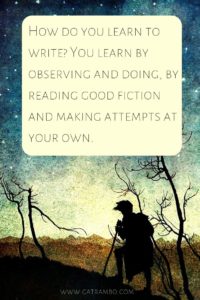
For a long time I listen to the ocean, a background of some chirping insect, shrill arcs of sound going out against that massive, constant grumble. That is what life is like, singing out against that gray and empty grind, not caring what it sounds like, because singing is the only thing you can do.
I can feel my shoulders relaxing as I type, the guilt of several weeks (over a month, really) of getting little done, not just because of the traveling or the distractions but because I let myself get lazy and forget that what a writer does is write. If you want to call yourself one, that’s what is necessary and while that’s a hard standard to maintain consistently sometimes in the face of a multitude of crises of the mind or body or world or family, it’s one I hold myself to, first and foremost.
A confession: I am not one of those writers who “have to” write, the ones seized with such a fervid muse that they cannot exist without words spilling out of them. I envy them, and sometimes in my heart, get irritated by a smugness that is really an interpretation imposed by my own insecurities.
But I have always defined myself as a writer, even in the days when I wasn’t writing so much and was pouring all that energy into writing for an online game or technical documentation or some combination of the two. So when I don’t do it, it’s not so much that it’s the writing building up. In fact, some days I’m digging the words out, and they’re obdurately clinging to the inside of my skull so I have to wrestle them onto the keyboard. Even now, I want them to flow and they’re halting, the flow coming in fits and spurts while all the time the ocean softly roars, as though it can’t help itself at times, perhaps getting just a little too excited, a little too enthusiastic in its mutterings.
Here’s the thing. When I’m not writing consistently, when I’m not hitting solid word count on at least most of the days of the week, I feel unmoored, adrift, unsure of my center. What good is a writer who isn’t writing?
There’s also an awareness of time creeping up on me. Often I wish I’d done more with those early years “” though who would have known in all that young adult thrashing about? While I don’t want to let guilt consume me, it’s not a bad goad. I believe it was John McPhee that said any motive for writing is valid, even spite and malice.
And it’s a goal that I know is doable, to hit two thousand words “” and more when I’m being motivated, which often coincides with felicities of mind or body. I don’t worry about whether they’re bad or good, all that matters is that they’re words that actually make it from my mind to the page. Right now I’m adding these words into the count, even though I don’t usually count nonfiction, because right now the focus is warming up, priming the pump, getting myself back into that productive groove.
It’s the days when I get no word count, not even a page written in a notebook, that really bug me, so when the words are flowing, there’s a point where all is well, when I can feel myself assembling words to express what I want to say and they’re falling into place quickly, one at a time but in a constant patter, like raindrops falling on the keyboard.
So tonight is swell and good. We’re here for a month, then probably onward to another country to try a few weeks there. I can get into a routine that feels productive and which includes some of the things that help ensure my mood is good and I’m undistracted by feeling unwell, such as good solid walking bouts and not eating junk food and getting enough sleep.
So what will I work on this month?
First and foremost is finishing up the YA novel I’ve been working on, along with several stories, two for anthologies and a couple for the Patreon campaign. While the stories will be fun and I do want to get them finished, the novel is what I want to be spending most of my time doing. I’ll be posting snippets and word counts as I go, keeping myself accountable. Because that’s another thing for a writer — you have to hold yourself accountable, because there’s nothing out there, really, to do it for you.
Good writing to you all. I hope you’ll get some words today as well.





 How do you learn to write? You learn by observing and doing, by reading good fiction and making attempts at your own. The truth is that writing is primarily self-taught, that the axiom that you must write a million words is on the mark, and that the first rule is this: To learn to write, you must be writing.
How do you learn to write? You learn by observing and doing, by reading good fiction and making attempts at your own. The truth is that writing is primarily self-taught, that the axiom that you must write a million words is on the mark, and that the first rule is this: To learn to write, you must be writing.

